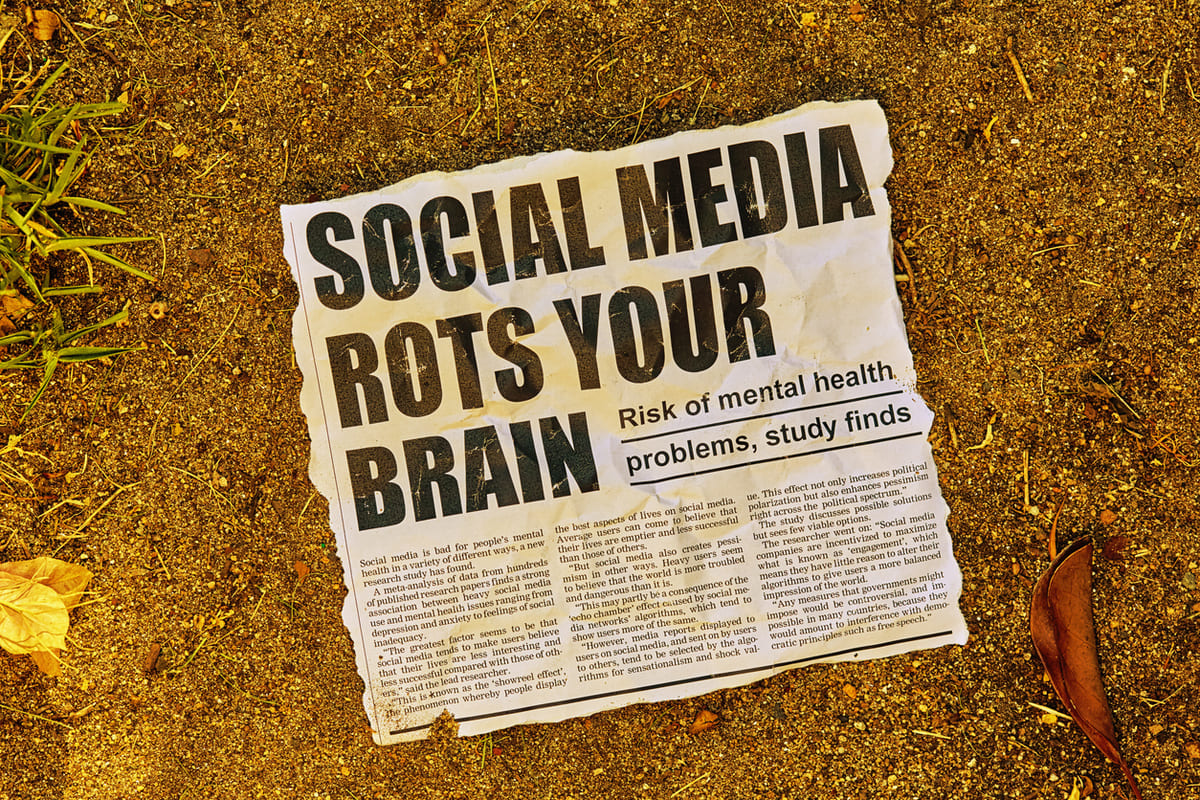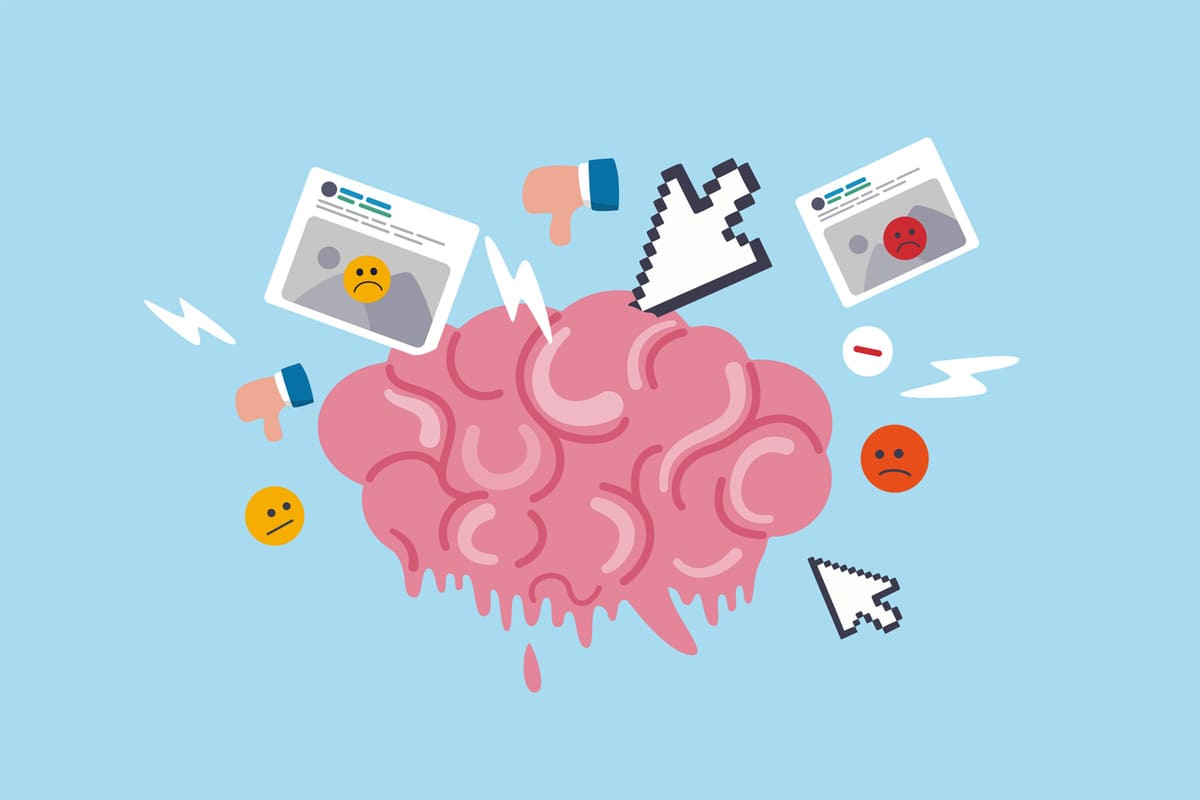In today’s hyper-digital, overstimulated world, many people, especially women over 50, are reporting symptoms of mental fog, forgetfulness, and a feeling that their minds just aren’t as sharp as they used to be. Often, these symptoms are casually labeled as “brain rot,” a popular (if non-medical) term used to describe the mental sluggishness that can set in due to a combination of lifestyle factors, aging, and environment. But what is “brain rot” really, what causes it, and how can you address it before it worsens?
What Is “Brain Rot”?

While not a medical diagnosis, “brain rot” is a colloquial term used to describe a noticeable decline in cognitive function. This might include symptoms such as:
- Memory lapses
- Trouble concentrating
- Reduced mental clarity
- Slower processing speeds
- Difficulty retaining new information
- Apathy or low motivation
This phenomenon isn’t necessarily caused by a single disease or condition. Instead, it’s often the result of cognitive decline due to a variety of lifestyle and physiological factors. While some people use the term jokingly, for many—especially older adults—it represents a serious concern about mental agility and long-term brain health.
What Causes “Brain Rot”?
1. Digital Overload and Passive Consumption
One of the biggest culprits in modern brain fog is excessive screen time. Binge-watching shows, scrolling social media, and mindlessly consuming content for hours a day can actually dull cognitive performance. The brain becomes overstimulated but underutilized in meaningful ways. Instead of engaging in deep thinking or creative problem solving, we get stuck in loops of passive engagement.
2. Poor Diet

The saying “you are what you eat” applies to brain function, too. Diets high in processed foods, sugars, and unhealthy fats can lead to inflammation in the body and brain. Nutrient deficiencies—particularly in omega-3 fatty acids, B vitamins, and antioxidants—can directly impair cognitive function.
3. Lack of Physical Activity
A sedentary lifestyle isn’t just bad for your waistline—it’s also harmful to your brain. Regular physical exercise improves blood flow to the brain and stimulates the production of neuroprotective factors, which help keep neurons healthy.
4. Chronic Stress and Poor Sleep

Stress hormones like cortisol, when constantly elevated, are toxic to the brain, particularly the hippocampus—the area responsible for memory. Sleep deprivation compounds the problem, as deep sleep is critical for memory consolidation and cellular repair in the brain.
5. Age-Related Cognitive Decline
As we age, it’s natural to experience some degree of cognitive slowdown. However, this decline is often exaggerated by the lifestyle factors above. In some cases, more serious conditions like dementia or Alzheimer’s may begin to develop, which is why monitoring and addressing symptoms early is key.
6. Mental Underuse
The brain is a muscle—it thrives on challenge. Retirement, isolation, or reduced engagement in complex tasks can lead to cognitive under-stimulation. When we stop using our mental faculties regularly, they can begin to atrophy.
How to Fix It: Practical Steps to Reclaim Mental Sharpness
The good news? “Brain rot” is largely reversible with the right interventions. Here are steps to get your cognitive health back on track:
1. Feed Your Brain Right

Shift to a Mediterranean-style diet rich in leafy greens, berries, nuts, whole grains, olive oil, and lean proteins. Omega-3 fatty acids (found in salmon, flaxseeds, and walnuts) are particularly beneficial. Supplements like B-complex vitamins, magnesium, and vitamin D may also help, especially if you’re deficient.
2. Exercise Your Body and Mind
Aim for at least 30 minutes of physical activity most days of the week. Walking, yoga, swimming, or dancing can increase blood flow to the brain and enhance neurogenesis (the creation of new brain cells). Combine this with mental workouts—puzzles, strategy games, learning a new language, or playing a musical instrument—to keep your brain agile.
3. Limit Digital Clutter
Set boundaries around screen time. Try a digital detox one day a week and replace passive scrolling with active hobbies, such as gardening, painting, or journaling. Use apps that limit social media use or set reminders to take frequent breaks.
4. Prioritize Quality Sleep

Sleep is non-negotiable for brain health. Aim for 7–9 hours of quality sleep each night. Establish a bedtime routine, limit caffeine late in the day, and reduce screen exposure before bed to improve sleep hygiene.
5. Manage Stress Proactively
Incorporate mindfulness practices into your daily routine. Meditation, breathing exercises, and spending time in nature can significantly lower cortisol levels. Don’t hesitate to seek therapy or counseling if you’re dealing with chronic stress or emotional challenges.
6. Stay Social and Engaged
Social isolation can exacerbate cognitive decline. Join clubs, take classes, volunteer, or simply reach out to friends and family regularly. Mental stimulation through conversation and shared activities is a powerful tool in preserving brain function.
When to Seek Professional Help

If you notice rapid or severe cognitive decline, confusion, or memory loss that interferes with daily life, it’s important to consult a healthcare provider. Conditions like depression, thyroid disorders, or even urinary tract infections in older adults can mimic cognitive decline and are treatable.
Final Thoughts
“Brain rot” may not be a clinical term, but it captures a very real and increasingly common experience, especially in an age where overstimulation, stress, and digital dependency are the norm. Fortunately, your brain is incredibly adaptable. With conscious lifestyle changes, a nourishing diet, and consistent mental engagement, you can not only halt cognitive decline but also rejuvenate your mental clarity and vitality.
Remember: it’s never too late to reclaim your sharpness. Your brain deserves care, challenge, and nourishment—just like the rest of your body.
Read Next:
10 Early Warning Signs of Dementia You Shouldn’t Ignore







